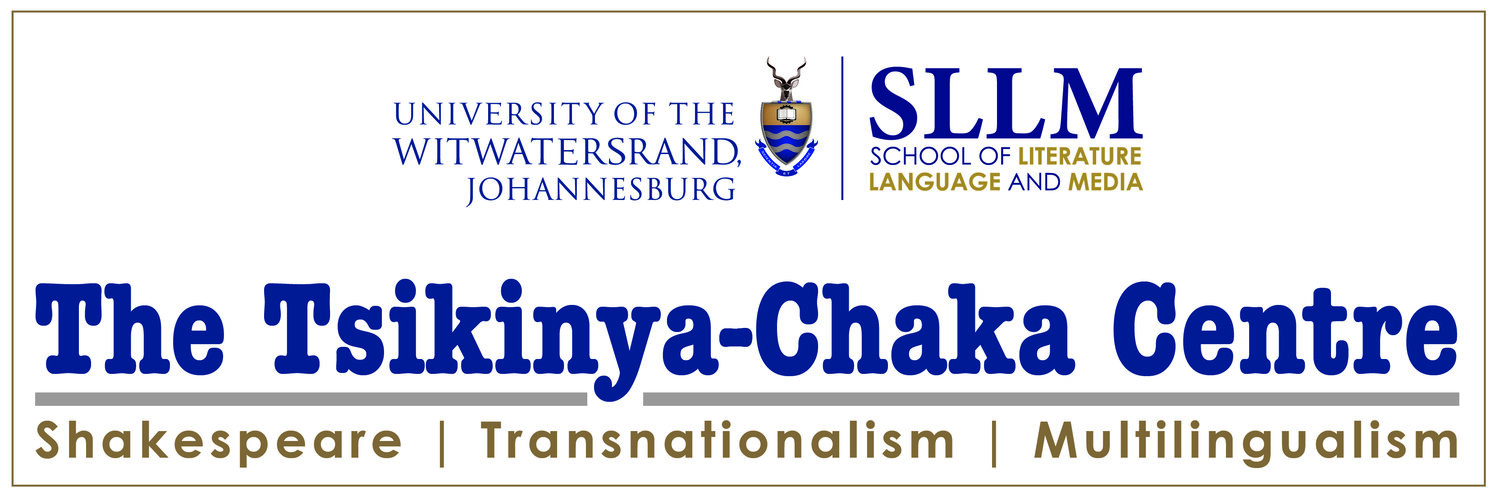About the TCC
The Tsikinya-Chaka Centre is a Research Unit in the School of Literature, Language and Media at the University of the Witwatersrand (Johannesburg, South Africa). Building on a significant but often-neglected history of translating Shakespeare’s plays into African languages, the TCC seeks to promote scholarship, teaching and performance that engages with Shakespeare as a multilingual phenomenon. This focus is complemented by an emphasis on transnationalism: understanding Shakespearean histories and contemporary practices in different national contexts around the world by situating Shakespeare outside of limited ‘English’ paradigms.

William Tsikinya-Chaka?
The Centre takes its name from Solomon T. Plaatje’s contribution to the 1916 Book of Homage to Shakespeare. Plaatje – a political activist, journalist, historian, novelist and linguist – is recognised as producing the first published translations of Shakespeare’s plays into an African language. As Plaatje himself noted, however, he was working within an already established practice of translating Shakespeare: he cites the reference of a Motswana court chieftain to “William Tsikinya-Chaka”, or “William Shake-the-Sword” (a Setswana translation, Plaatje tells us, that is “perhaps more free than literal”). The Book of Homage is, of course, bound up in British colonialism and in competing European nationalisms. Yet it is also a significant manifestation of ‘global Shakespeare’ and of multilingual Shakespeares – arguably even foreshadowing the advent of postcolonial Shakespeares. Its paradoxes, and those of a figure like Sol Plaatje, remind us to approach multilingualism and transnationalism in Shakespeare studies with critical rigour.



